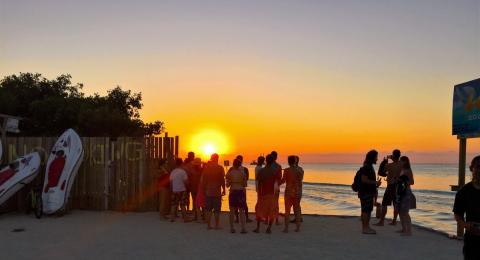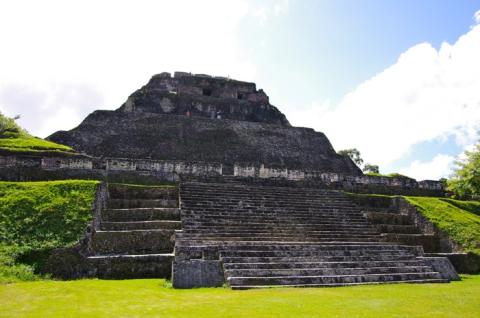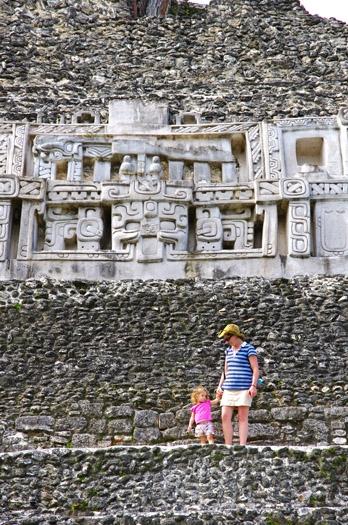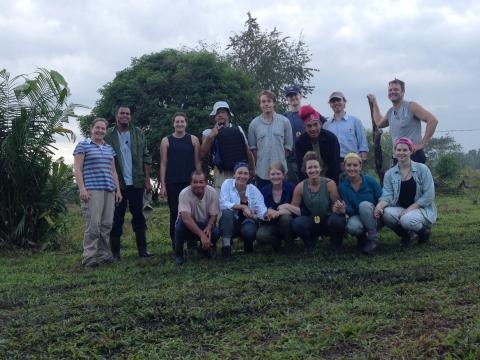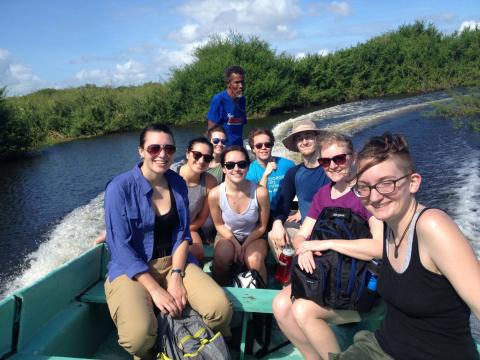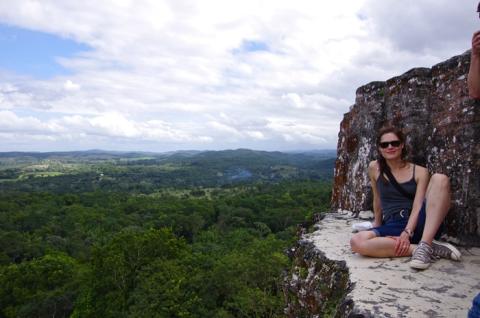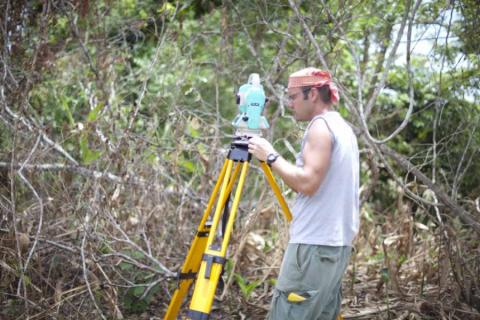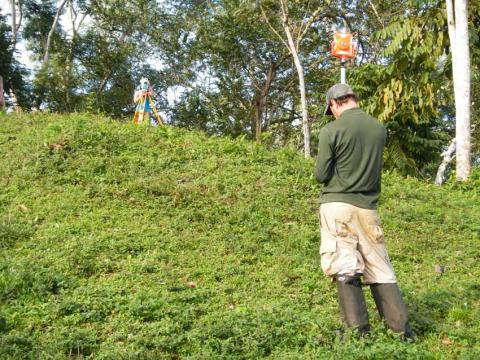January Term Study Abroad Program
Three-week January term course in Belize
Ever dreamed of going on an archaeological dig or finding ancient sites hidden in the jungle? Then come join us in Belize this January on the Survey & Mapping in Belize course and experience it for real while earning college credit toward your degree!
The Archaeological Survey & Mapping in Belize course is not a typical study abroad—the program offers college students a rare opportunity to be active participants in the archaeological investigations of ancient Maya sites. Program benefits include:
- Open to all students! No pre-requisites, foreign language skills, or specific knowledge needed. All interested should apply!
- Escape the New England winter for three weeks in tropical Belize
- Earn 4 UNH credits over the January Term
- Actively contribute to an ongoing archeological dig site. Students regularly uncover physical artifacts.
- Discover the fascinating cultural history of Belize
upcoming info sessions and more details
Term Offered
January Term
Travel Dates: Jan. 1-18, 2026
Application Deadline
October 1
Contact
Eleanor Harrison-Buck
Professor of Anthropology
Belize Archaeological Field School Director
e.harrison-buck@unh.edu
(603) 862-4742
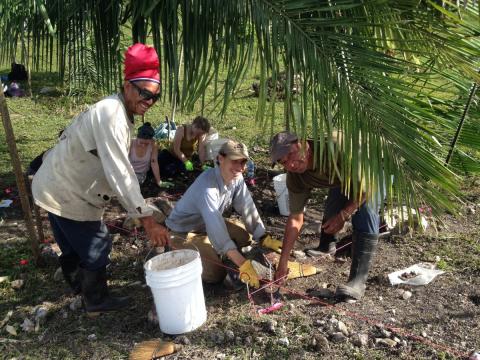
The Archaeological Survey & Mapping in Belize course is not a typical study abroad—the program offers college students a rare opportunity to be active participants in the archaeological investigations of ancient Maya sites in the BREA study area. The results of the fieldwork contribute directly to Dr. Harrison-Buck’s ongoing Belize River East Archaeology (BREA) research project. The course is limited to no more than 12 students. In addition to the Director, the BREA project includes five staff members, including a professional surveyor and four PhDs trained in Maya archaeology, survey, mapping, and ArcGIS software. Because we keep the field school small, the program offers an incredible staff-to-student ratio, with intensive, one-on-one instruction in archaeological field and laboratory methods from our experienced staff.
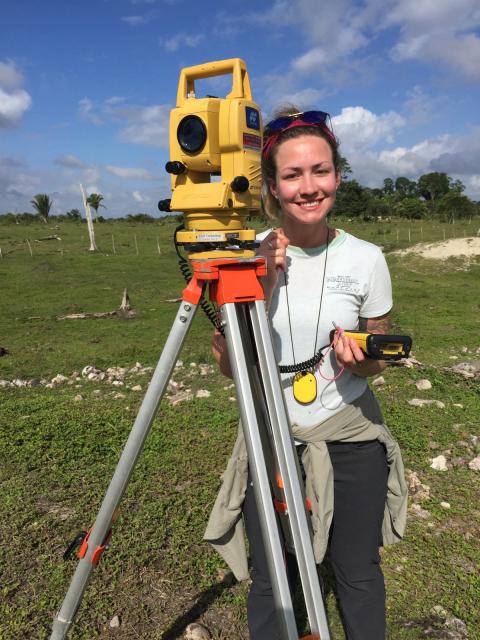
During the day, students will experience hands-on field training in survey and mapping of Maya archaeological sites, as well as laboratory processing and analyses of recovered artifacts and other surface finds. The course consists of nightly lectures on a variety of topics related to survey and mapping and ancient Maya settlement archaeology. Evening labs will include hands-on lab practicums where students receive training in ArcGIS software and digital map production. This course will be of interest to a wide range of students, including those studying archaeology, geography, forestry and environmental studies, architecture and urban planning, geology, and geospatial technologies, among other fields.

The program also includes several program excursions including a boat ride and guided tours of several nearby Maya ruins that have been developed for tourism, including the large sites of Lamanai and Altun Ha. There is a free long weekend where optional trips can be arranged, allowing students to explore other parts of the country, such as the cayes.
It is important for all prospective participants to be fully aware of the conditions of the field school and expectations of the participants. Students are applying to join an archaeological field research project that is operating in Belize, Central America. This is a culturally diverse country and they will be working under conditions that will likely be quite different from those to which they are accustomed. The project requires all participants to live and cooperate in close quarters with others and involves hard physical labor in a hot, tropical environment, often hiking into remote parts of the jungle. Roads are not always going to be paved and in good condition and some riverside sites are only accessible via canoe.
Faculty Leader
Prof. Eleanor Harrison-Buck, Department of Anthropology
The Archaeological Survey and Mapping in Belize course (ANTH 674) offers students hands-on training in survey and mapping techniques, as well as digital cartography using ArcGIS mapping software. The course is worth 4 UNH credits. Students also will rotate teams and get some exposure to field excavation techniques and lab work. The field course is primarily aimed at preparing students how to accomplish all aspects of field survey and mapping and focuses on the recording of ancient Maya archaeological sites in the eastern Belize River valley.
Dr. Eleanor Harrison-Buck has been doing archaeology in Belize for over 25 years and initiated the BREA project in 2011. She will be responsible for all aspects of the field course, including lectures, in-field instruction and supervision, and direction of all field and laboratory work. Two experienced graduate-level Teaching Assistants will assist in the field course, helping to train students in survey and mapping of archaeological sites in the BREA study area. Permission to survey and excavate sites in the BREA study area has been granted to the PI by the Belize Institute of Archaeology.
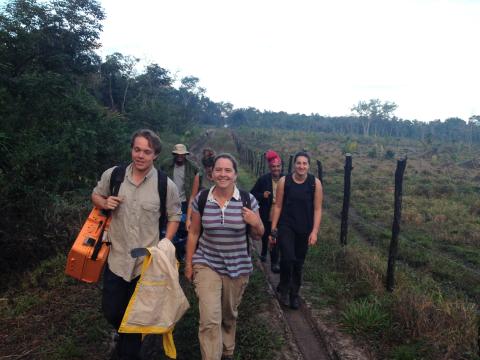
The field school will be based out of Tillet’s Lodge in Crooked Tree (shown below), located less than an hour north of the Belize International Airport. The village is located in a beautiful spot along the Western Lagoon—the largest inland wetland in all of Belize This 16,400 acre wetland system is part of a protected wildlife sanctuary that hosts up to 400 different species of birds, including the largest bird in the Americas, the endangered Jabiru, which uses the nearby area as its nesting ground. Crooked Tree is a small, rural Creole village, consisting of dirt roads, a handful of restaurants, and simple thatch and cement houses. The village is surrounded by wetlands, jungle, and areas of cleared pasture where cattle are regularly seen roaming. Students will share rooms at Tillet’s Lodge (2-4 students a room). The lodge (shown below) will provide three meals a day to all field school students and staff, including a daily breakfast, pack lunch for field excursions, and a sit-down dinner in their thatch palapa dining room.
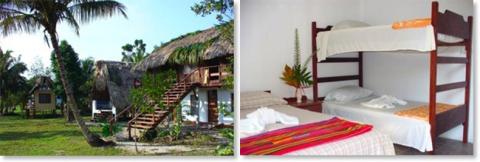
The total cost of the program is made up of three parts: J-Term tuition & registration, a program fee, and study abroad administration/international insurance fees. Click on the "More Program Details" link above to find term-specific costs.
The program fee will include the following:
- All student transportation in Belize once the project begins until it ends
- Program-related excursions
- Lodging (students may share a cabana with other students)
- Three meals/day 7 days/week while at the lodge
